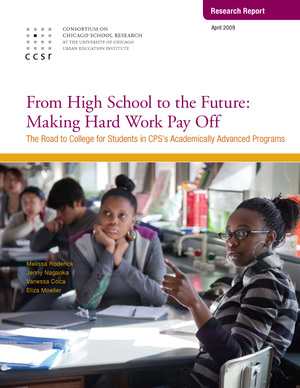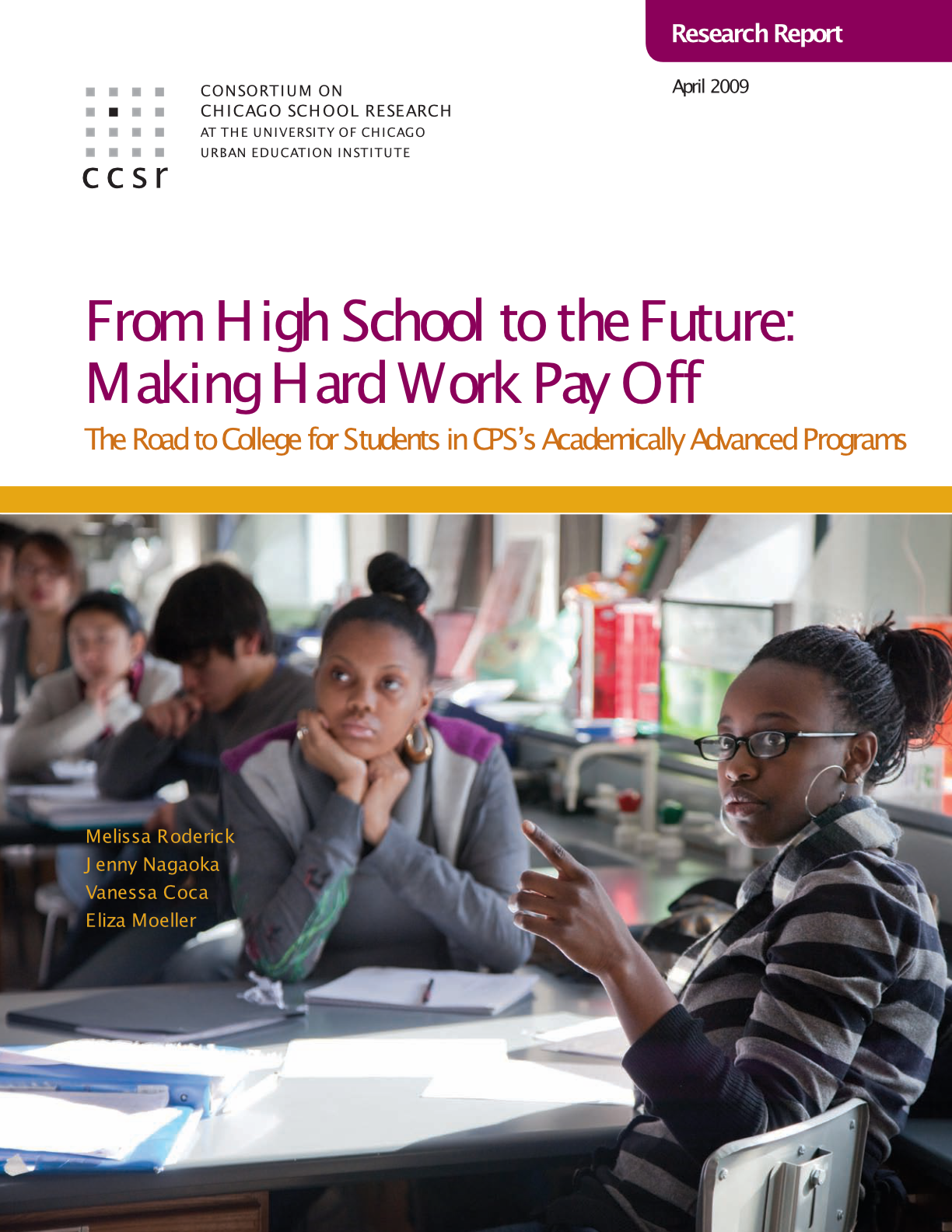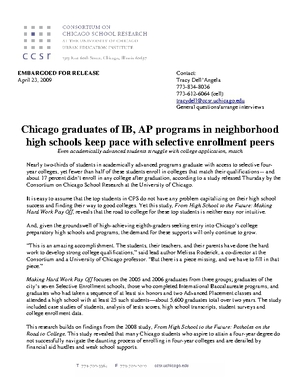Ch. 1:
1. What courses are CPS students required to take senior year?
2. How do CPS graduation requirements align with the expectations and minimal entrance requirements of colleges?
3. How do the graduation requirements and coursetaking trends in CPS compare to trends nationally?
4. Which set of courses signal "rigor" to colleges? And to what extent is there a significant difference between the coursework that minimally qualifies a student to get into the application pool and coursework that enables a student to be competitive in an increasingly well-qualified pool of applicants?
Ch. 2:
1. Why would students who are positioned to attend a four-year college not take an academically focused senior year?
Ch. 3:
1. Are the differences in norms and expectations for students accross high schools associated with differences in college enrollment and college retention?
Ch. 4:
1. Is senior year in Chicago a culminating and transitional experience for students or a "waste of time?"
Since 2004, the UChicago Consortium has tracked the post-secondary experiences of successive cohorts of Chicago Public Schools graduates and examined the relationship among high school preparation, support, college choice, and postsecondary outcomes. The goal of this research is to help CPS, other urban districts and national policymakers understand what it takes to improve the college outcomes for urban and other at-risk students who now overwhelmingly aspire to college. UChicago CCSR's first report in this series, From High School to the Future: A First Look at Chicago Public Schools Graduates' College Enrollment, College Preparation, and Graduation from Four-year Colleges, showed that increasing qualifications is the most important strategy to improving students' college participation, access to four-year and more selective colleges, and ultimately college graduation rates. The second report, From High School to the Future: Potholes on the Road to College, looks beyond qualifications to examine where students encounter obstacles on the road to college.
This new report looks at the path to college for students in academically advanced programs--graduates of the city's seven Selective Enrollment schools, those who completed International Baccalaureate programs, and graduates who had taken a sequence of at least six honors and two Advanced Placement classes. The study reveals that nearly two-thirds of these students graduate with access to selective four-year colleges, yet fewer than half of these students enroll in colleges that match their qualifications--and about 17 percent didn't enroll in any college after graduation.
The study also shows that AP and IB programs seem to be filling an important gap in neighborhood high schools for students with higher-than-average achievement, and that students graduating from academically advanced programs have ACT scores and grade point averages that are substantially higher than the average CPS student--although there are wide variations among schools. Academically advanced students face distinctive challenges in navigating the road to college--especially if they are first-generation college-goers and cannot count on receiving expert knowledge, the authors conclude. The study included case studies of students, analysis of tests scores, high school transcripts, student surveys and college enrollment data for about 5,600 graduates over two years.






